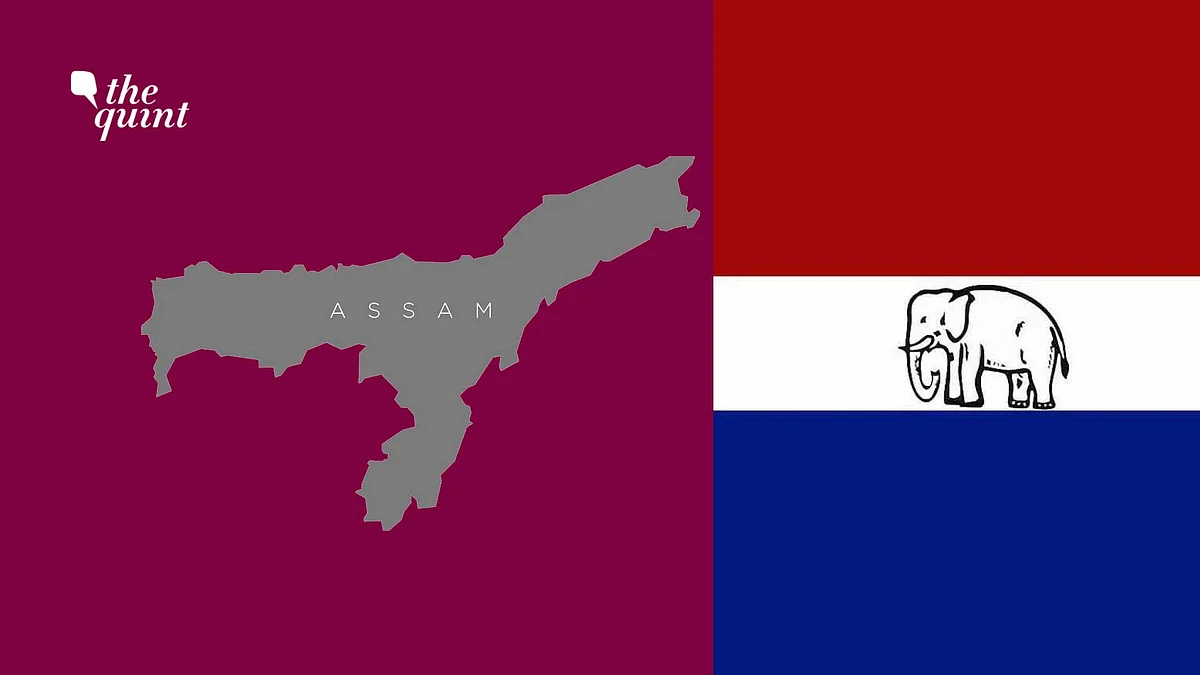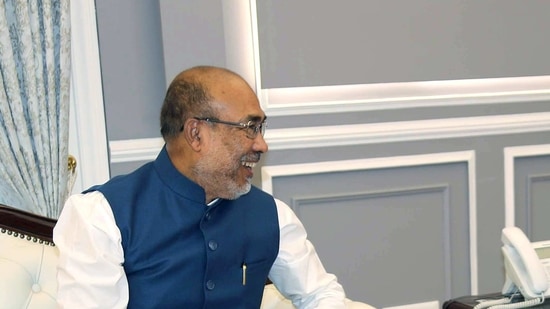BJP has taken away a number of winnable seats from AGP and given it constituencies where Congress-AIUDF is strong.

The Asom Gana Parishad (AGP) – a party that was founded in 1985 as a result of the Assam agitation and became synonymous with Assamese pride – is now being seen as the weak link in the ruling National Democratic Alliance (NDA).
On the other hand, the Bharatiya Janata Party (BJP), which began as a junior partner of the AGP, has now actively sidelined the latter. And this process has happened under the leadership of Chief Minister Sarbananda Sonowal, who himself used to be in the AGP.
Irrespective of whether the NDA comes out victorious on 2 May or if the Congress-led 10-party Grand Alliance manages to turn the tables, one thing is clear – the AGP could emerge weaker than ever before.
Though the party managed to get 26 seats from the BJP, a closer look at the seats it has been given shows that a majority of these seats are not winnable.
There are four reasons for this.This includes former CM and AGP founder Prafulla Mahanta's seat Barhampur, which he has won six times since 1991. Though Mahanta is not in good health, his supporters believe he would still have been able to win the seat and taking it away was nothing but cussedness on the part of the BJP.
What has hurt Mahanta's supporters even more is that the AGP top brass – such as party president Atul Bora – agreed to the move to give Mahanta's seat to the BJP.
Now, Barhampur may become a tough seat for the NDA, with Congress putting up a strong candidate in Suresh Bora, who had narrowly lost to Mahanta in 2016.
If Mahanta's loyal voters – those who may have been given jobs or other forms of help by the former CM over the past three decades – decide to vote against the NDA, it could spell trouble for the ruling alliance.
The other such seats won by the AGP in 2016 that have been taken away by the BJP are Kamalpur, Lakhimpur, Naharkatia, and Patacharkuchi. In Kamalpur, sitting AGP MLA Satyabrat Kalita has since moved to the Congress.
The case of Patacharkuchi is interesting as Assam BJP President Ranjit Dass has taken the seat from the AGP. Apparently, Dass wanted a safe seat after his own seat Sorbhog became difficult due to the Congress' alliance with the All India United Democratic Front (AIUDF) and the Left, all of whom have a presence in the constituency.
The Sarupathar seat is also important in this context. The AGP lost this seat narrowly last time and may have fancied its chances of winning it this time but now even that seat has been taken by the BJP.
Apparently all these seats were taken by the BJP with the full consent of the AGP leadership, which clearly shows the unequal power equation between the two parties.
This is in complete contrast to the time when the BJP was a junior partner to the AGP.
2. BJP Hands Over 8 of Its Own Tough Seats to AGP
The second category is of eight seats that the BJP had contested in 2016 but which have now become difficult due to the Congress-AIUDF alliance and have now been put in the AGP's quota.
The BJP insiders say this is a tactical decision as these are Muslim-dominated seats and the community may be more open to voting for an AGP candidate than a BJP one. But one can't ignore the fact that these seats may no longer be winnable for the NDA due to the sheer strength of the Congress-AIUDF arithmetic there.
These seats include Mankachar, Senga, Bhabanipur, Karimganj South, Raha, Goalpara East, Goalpara West, and Naobaicha.
Among these, the AGP had a friendly contest with the BJP in Naobaicha and Goalpara West last time, but the BJP did much better than the AGP and yet these seats have been given to the latter.
Raha interestingly has a BJP MLA but the seat has become difficult due to the Congress-AIUDF alliance.
However, from an arithmetic point of view, the AGP may still be in the contest in Raha, Bhabanipur, and Naoboicha, but the other five may be very difficult for it due to a very high combined vote share of the Congress and AIUDF.
3. Nine AGP Seats That Have Become Tough Due to the Congress-AIUDF Alliance
Then there are nine seats which were in the AGP quota even last time but have now become almost unwinnable due to the Congress-AIUDF alliance. These include Algapur, Abhayapuri North, Abhayapuri South, Barpeta, Sarukhetri, Boko, Chaygaon, Dalgaon, and Jamunamukh.
Except Chaygaon, the combined vote share of the Congress and AIUDF based on 2016 figures is 58 percent and above in all the seats, making them almost certain for the alliance.
In Dalgaon, the combined vote share of the two parties exceeds 80 percent.
Interestingly, the AGP had managed to win Barpeta last time due to a split in votes between the Congress and the AIUDF. The Congress polled 35 percent votes and the AIUDF 23, while the AGP emerged victorious with a vote share of 39 percent. With the Congress and AIUDF contesting in alliance, it would be very difficult for AGP to retain this seat, even if there isn't a complete transfer of votes between the two parties.
4. Challenger Within AGP’s Ideological Space
If one factors in the difficulty the AGP is facing in the seats above, it would leave just nine seats where it has a good chance of winning: Bongaigaon, Guwahati West, Tezpur, Kaliabor, Bokakhat, Chabua, Amguri, Teok, and Dergaon.
But even in these seats, it’s easier said than done for the AGP. The party is facing a major challenge from the newly formed Assam Jatiya Parishad and its ally Rajior Dal. Formed by the All Assam Students' Union and Asom Jatiyabadi Yuva Chatra Parishad, the AJP is trying to occupy the same ideological space as the AGP.
With the AGP weakening in strength and compromising on issues like the Citizenship (Amendment) Act, a need was felt for a new Assamese nationalist outfit and hence the AJP was formed.
Among the AGP's seats, the AJP-RD alliance is likely to give a strong challenge in seats like Chabua, the epicentre of the anti-CAA protests, besides the other Upper Assam seats like Amguri, Degaon, Kaliabor, and Bokakhat.
In Amguri, the AGP is also faced with a strong Congress candidate, Angkita Dutta.
There are structural problems, too, that the AGP is facing. Ground reports suggest that tea garden workers – a crucial vote bank especially in Upper Assam – are slightly less enthusiastic about AGP candidates than BJP candidates. This could prove crucial in closely contested seats between the AGP and Congress, which used to control this vote bank earlier.
The AGP may be heading for one of its worst performances ever in terms of number of seats. In the end, its top leadership like Atul Bora and Keshab Mahanta may have succeeded in securing their own seats, the AGP may end up being a net loser, creating a vacuum that newer parties like the AJP will try to fill.
Source: The Quint






 Men and women often
Men and women often 




